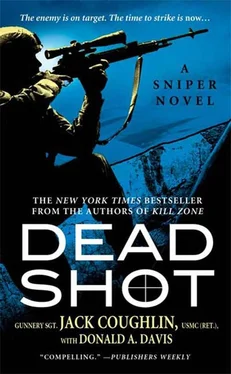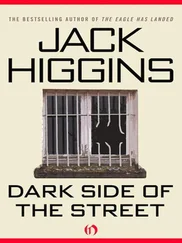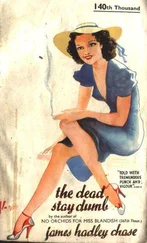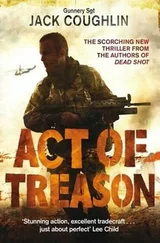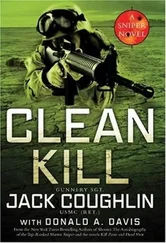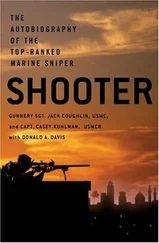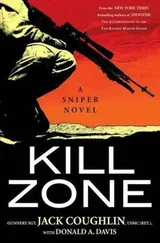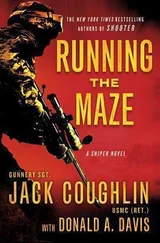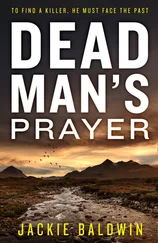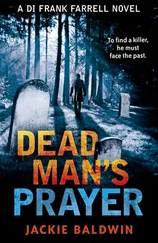Saladin laughed to break the serious tone. “Good. We are finally so very close to the end. After you dispose of this trash, we can go out and have time for a nice dinner before you leave.”
Juba opened the door and summoned two more men to help with the corpses as the slow sun set and the lights of Paris illuminated the night. Saladin stood at the window, feeling the rhythm of the city alter from a daytime center of commerce to a nightscape dedicated to personal pleasures. He liked this house and decided to stay here for a while.
He heard the men removing the body behind him but did not turn to watch. The al Qaeda fool actually believed an Islamic government could be seated in Paris. It was true that France had more Muslims than any other Western European nation, but that was still less than 10 percent of the overall sixty-four million Frenchmen. Aseer must have thought he commanded some German army. Al Qaeda thought in such small terms.
If Saladin had any real problem that evening, it was the knowledge that he must devote considerably more energy to his protégé. Anyone who did not think twice about setting off a device that condemned unknown hundreds of people to painful deaths obviously required careful handling.
He wondered if Juba ever looked deeply into a mirror or thought about the deadly paradox that he had become. The sniper felt betrayed by his home country, England, and most recently by al Qaeda, which had recruited him so many years ago. He had lost faith ! Saladin had long listened to Juba’s spoken outward devotion to Islam and his dream of cutting himself off from the outside world and living like a penniless peasant in the service of the Prophet. The true dedication, however, was not there, and the dream was so unrealistic that it could never be fulfilled.
For while he was a skilled assassin and soldier, Juba’s motives were muddled and corrupt. He lived in the moment and was never more alive than when in combat, where his senses tingled with anticipation. He was a perfect fit for the sniper hides and the combat holes, but those assignments did not last forever. In between, in the down time, he had learned to live the good life. He had been ordered to do so and had been declared exempt from violating the Koran! Years of five-star hotels, luxury cars, exquisite tailoring, top-shelf whiskey, and the company of beautiful women in trendy clubs was the lubrication that kept the deadly machine running and ready to strike. The adopted and addictive Western lifestyle cost a great deal of money, and that was the rub: the final rivulet of water needed to bring down his stone bridge back to Islam. Juba had lost his religion, and probably everything else, and didn’t really know it. He had learned to like money more than the stern lifestyle preached by the fanatics.
Saladin played along, keeping him on a leash, just as a snake charmer must carefully play a cobra in a basket. Cobras do not care who they bite, and Juba no longer truly killed for any cause, not even vengeance; he killed because he enjoyed killing.
LEBANON
2002
Saladin remembered his own coming to terms with the future, sweating on the day he stood before Saddam Hussein. At the time, he was just an anonymous lieutenant colonel in the Iraqi army, second in command of the United States Battalion of Unit 999, Saddam’s elite terrorism force. The unit was charged with developing what the Iraqi leader called “special ammunition for special circumstances,” meaning terrible weapons of mass destruction. There were nine battalions in all, up to five hundred men each, based in various regions and countries with orders to strike within those areas if war came to Iraq. Regardless of such a conflict actually on the horizon after the 9/11 attack on America, the crazy dictator was shipping the materials from Iraqi military stores into Syria and Lebanon and even Iran!
Saladin and his commanding officer had been called to one of Saddam’s many palaces to report the status of the United States Battalion’s mission to develop a virulent biochem nerve agent that could be deployed within the United States. The work had been going on since the 1980s, slowly and steadily, but with the many starts and stops of any major scientific research program. Much of the research had even been done within the United States itself, under the noses of the FBI and sometimes with the willing assistance of the CIA. In the years in which Iraq was fighting Iran, and Afghanistan was fighting the Soviets, the United States had been quite helpful.
They snapped to rigid attention before Saddam, who was smoking a cigar as he stared at them. Flanking the dictator were Uday and Qusay, his two murderous sons, and at the end of the table was Ali Hassan al-Majid, the man known as Chemical Ali. Those four had created Unit 999 and kept its terrible objective as a secret among themselves.
When Saddam quietly asked if the weapon was ready, Saladin knew his life rode on the dictator’s reaction to the answer. Not quite, replied the commander of the United States Battalion. Perhaps one more year of research and development would be required. Maybe even two years. Uday and Qusay exchanged glances and grinned. Saddam tapped his cigar ash and nodded his head, as if in understanding of the difficulties involved.
A burly bodyguard stepped forward without a sound and crushed a long iron bar onto the right shoulder of Saladin’s superior officer, who crumpled in agony when the bone broke. Two more bodyguards joined in the pounding as Saladin struggled to remain at rigid attention while his friend and colleague was beaten to death by his side. He could still recall the crunching of the bones, the spreading pool of blood, and the screams, with the uncaring eyes of Saddam Hussein watching him, not the man being beaten to death. When it was done, Saddam leaned forward and said, “You are now a full colonel and the new commander of the United States Battalion of Unit 999. You have three months to finish the work. You may go.”
Saladin saluted, turned on his heel and marched out of the palace, found a quiet place, and threw up.
Saddam Hussein was crazy, the plan was crazy, and if he stayed in this job, he was crazy, too.
The new colonel was required to stay around Baghdad for a while to help transfer much of the technology and equipment comprising the Iraqi stock of weapons of mass destruction onto railroad cars and refitted Boeing planes to shift the components out of Iraq. He consigned some of it to go to America, through a front company in Jordan.
It had been at dinner in a quiet Baghdad café one night during that time that he was introduced to a unique young warrior called Juba, who, it was said, had been waging a one-man sniper campaign in Afghanistan and was a superb killer of infidels. The man was quiet, with a sense of spiritual loneliness, and Saladin, who was a scholar as well as a soldier, decided to exploit that missing piece. This could be his way out of the disaster that was surely coming toward Saddam Hussein’s army.
At nights and in the mosques, he guided his new friend deeper into the Book, behind the words of the Koran and into the concepts of what it truly meant to be a Muslim. He steered the conversations easily toward the approaching war, and Juba agreed totally that Iraq would lose.
Since Juba was so bitter about his experiences in Afghanistan, it was not difficult to convince him that Muslims needed a goal higher than squandering their lives to achieve another round of fourteenth-century squalor.
“There will never be a rebirth of any united nation of Islam, unbound by colonialist borders and not ruled by worthless kings,” he said. “But that does not mean the struggle should cease.”
Juba snorted and sipped some tea. “We will lose. Iraq is doomed.”
“What would you say, my friend, if I told you there is a better way that you and I can serve the Prophet?”
Читать дальше
